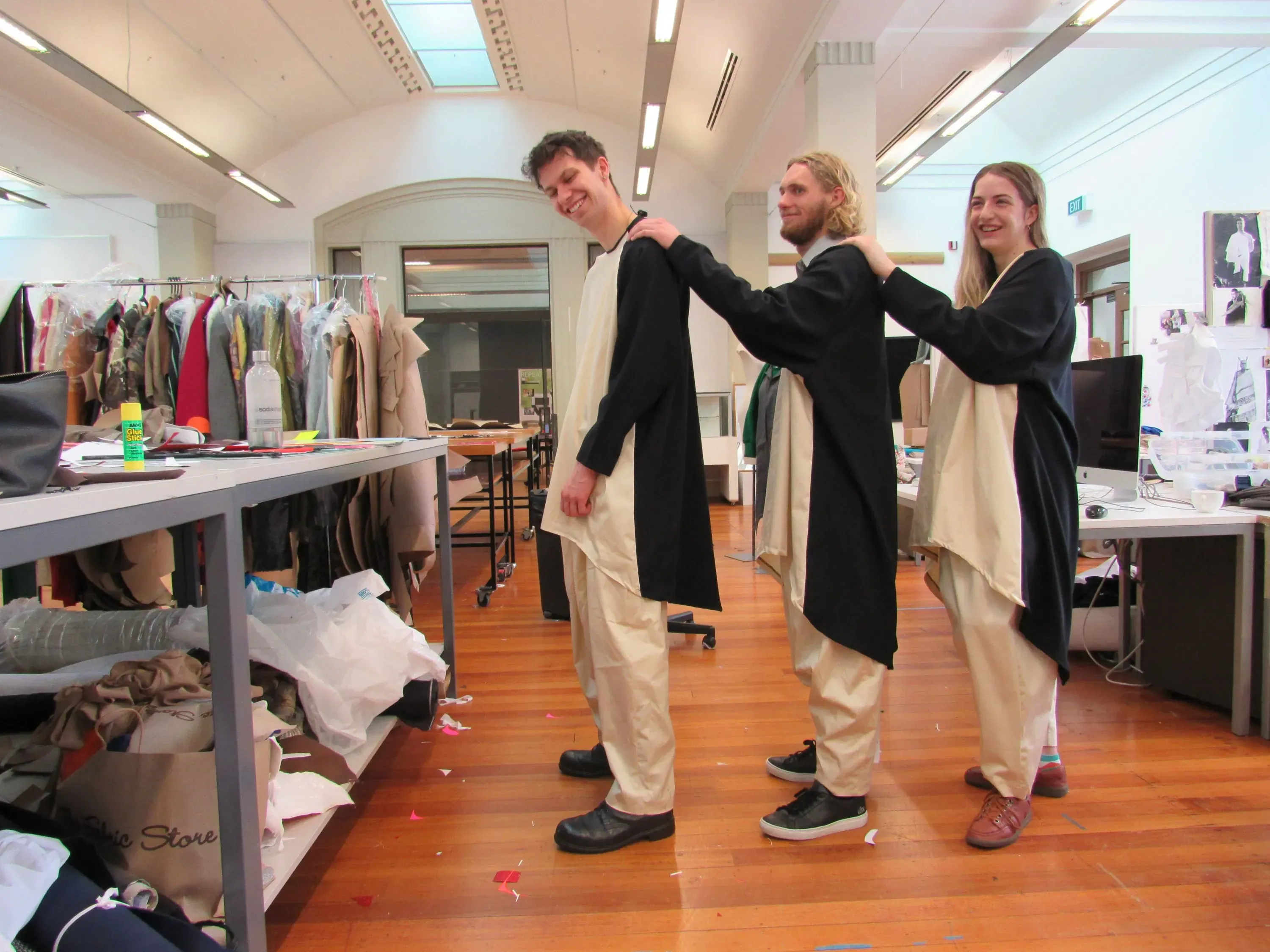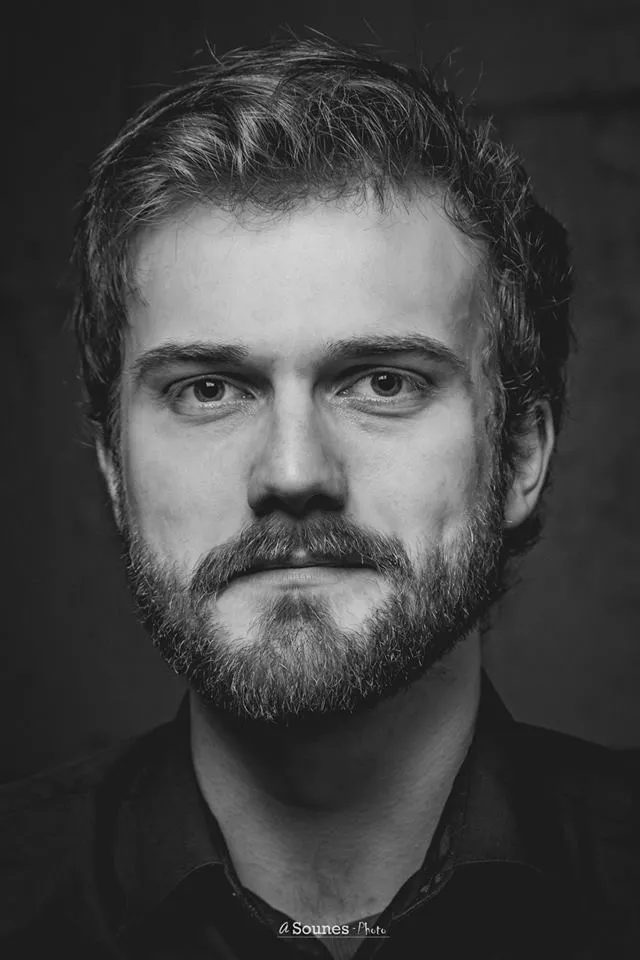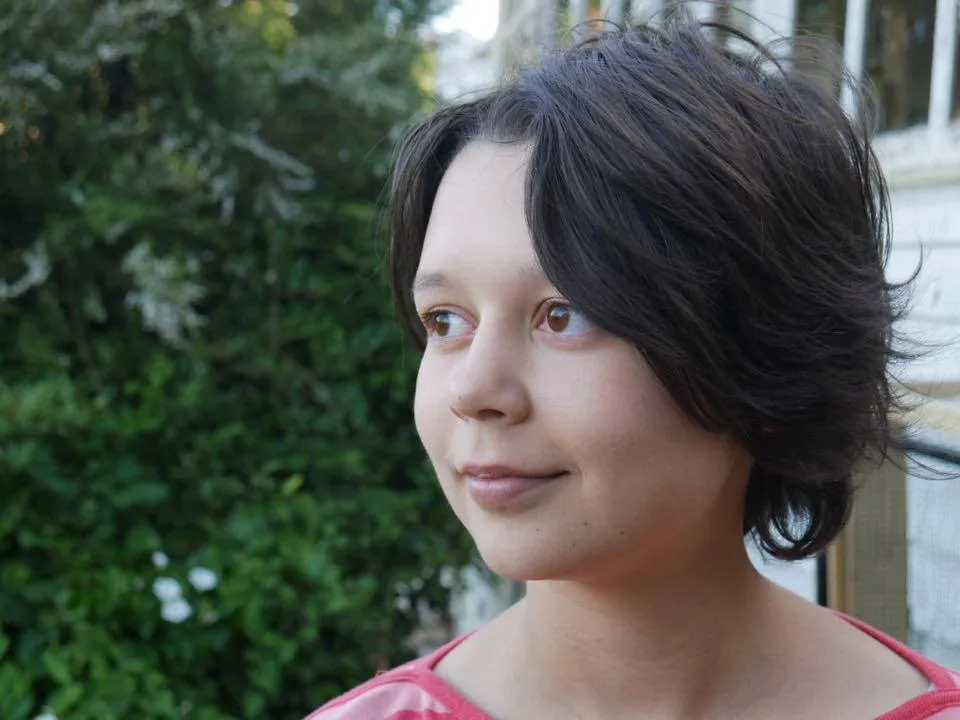No ‘doom and gloom’ here: Theatre puts hope into climate challenges
Written by

The climate change statistics are dire - some say we have 15 years to decarbonise, others claim it’s even less - but theatre practitioners around the world are teaming up over the next two months to find ways for us to laugh at ourselves and be hopeful about the future.
Why the positive spin? Climate Change Theatre Action global organiser Chantal Bilodeau says we know the facts, and now we need hope. Theatre helps in many ways - not least because it is inherently collaborative and “complex problems must be addressed through collaborative efforts”. Bilodeau believes theatre holds the ability to move people emotionally, which is essential in aiding us through our fear and apathy.
Bilodeau says, “It’s time for action. And for action to be effective, we need inspiration. Doomsday scenarios won’t galvanise us; we need hope and a capacity to imagine the future we want to create. In short, we need new narratives. And who better to provide those than writers?”
To that end, Bilodeau commissioned 50 playwrights from around the world to write one-to-five-minute plays about an aspect of climate change. They were given the prompt: Assume your audience knows as much as you do. Assume they are as concerned as you are. But they may not know what to do with this information and those concerns. So how can we turn the challenges of climate change into opportunities?
The resulting plays are widely divergent in style, cultural orientation, voice and genre, but they have one thing in common: they engage people with climate issues in ways that bald facts and figures cannot. They recognise that climate is cultural as well as scientific, and that envisaging a different future requires imagination and creativity.
Between October 1 and November 18, at least 200 groups in 40 countries worldwide will choose selections from the 50 plays in order to creatively stimulate conversations about climate change and offer a vision for a sustainable future.
Six playwrights with ties to Aotearoa New Zealand are part of the 50 recruited CCTA writers in 2017. They are David Geary and Elspeth Tilley, both of whom also wrote for CCTA in 2015, plus new recruits for 2017, Miria George, Kasaya Manulevu, Ian Lesā and Philip Braithwaite.
To date, three CCTA events have been announced in New Zealand: a reading in Auckland for drama teachers, a performance of three plays in Hamilton at Waikato University and, in Wellington, Massey University is partnering with youth-led climate action NGO, Generation Zero, to stage nine plays and a performance walk on October 23.
Massey students and staff, along with some well-known local professional actors, are taking on a wide range of roles from astronauts and penguins to Dakota Access Pipeline protesters and frustrated climate scientists. The nine chosen writers are from Lakota, Jamaican, Portuguese, Australian, New Zealand, Samoan, Canadian and US communities. The event is called ‘Still Waving’ in reference to the global challenge to promote hope - the title suggesting that humanity is as yet still waving, not drowning.
One of those participating in Still Waving is Pipi Reisch. As well as stage-managing the Wellington event, Pipi has been designing costumes from recycled materials, sourcing sustainable props, and will play a scientist. She explains her desire to be involved in the movement began in 2016 through a similar initiative, Create1World, a conference that brought youth together to explore ways to creatively activate about societal issues they cared about.
“I think to find ways that you can creatively activate about issues such as climate change is an effective way to create a dialogue. Theatre, such as Still Waving, allows people to engage at a level that on the surface is entertaining, engaging and fun while bringing big issues to the forefront at a deeper level. Activating about issues we care about does not just mean marching with placards, but finding out how to connect with people in an everyday way.”
Another cast member is Kevin Karn, an improvisational comedy actor who has performed with the National Comedy Theatre in San Diego, California, and is currently living in Wellington. He arrived in New Zealand in August and immediately spotted the Still Waving casting call in The Big Idea. Karn will play two roles: a climate scientist and an intriguing meta role where he plays an actor playing the playwright.
He says “I have always viewed theatre as a vessel for political action and positive change. Seeing all of the natural disasters destroying the Caribbean and parts of my home country back in America has really brought this issue to the forefront for me. We really need to start prioritising our planet now and Climate Change Theatre Action is such a beautiful way for the world to come together and creatively express care and unity towards a universal problem.”
At 16, Wellington High School student Zora Patrick is the youngest Still Waving cast member. She says, “In theatre we can communicate in a very intimate way with people by opening up to them and reflecting parts of them that they may not have seen before. This makes theatre a great medium through which to make people question themselves and the world around them, serving to open up a conversation which could incite real change.”
Hamish Boyle, who will play both a Bald Eagle and a man whose partner leaves him to colonise Mars, is a veteran of two CCTA shows as well as a stalwart of the Wellington theatre scene. He says “The intimacy of theatre can be so much more enthralling and engaging for active change, or at least discussion, after an audience checks it out.”
Still Waving event producer Elspeth Tilley, a theatre lecturer at Massey, agrees. “We all know what we need to do at a rational level... yet it’s not always happening consistently. And that’s because we need to engage our hearts. Only when we really start to feel passionate about what we can contribute and how it will help, will widespread and rapid change happen - and that’s where theatre comes in.”
In 2015, Tilley’s CCTA play about Pacific climate refugees, ‘Flotsam’ was performed in 10 international venues, taking a Pacific worldview to the world. This year, her play ‘The Penguins’ uses humour to imagine what other species might think about humanity’s efforts to avert climate change - specifically, what penguins think about humanity’s activities in Antarctica.
“I found the challenge to write positively about climate change extremely difficult,” Tilley says. “My 2015 play was deeply cynical and that was easier. But we were told to inspire hope this time, and I struggled with that for weeks. Then a Massey colleague, playwright Stuart Hoar, suggested I research examples that show humans can reverse their behaviours or ‘learn new tricks’ if they try hard enough, such as banning CFCs, and I was away. We have managed to keep mining and war out of Antarctica, which shows we can do it if we try - so I used this as a hopeful example of what might be possible on a planetary scale if we work harder to change and collaborate together.”
The CCTA climate actions are not limited to theatre - there are also marches, scientific discussions, social media campaigns and more. For example, DearTomorrow is a digital archive project where people share letters, photos and videos to their children, family or future self about their promise to take action on climate change. Messages are shared on the websitedeartomorrow.org and through social media, traditional media and arts projects to increase motivation and to open up a conversation about why we need act now on climate change.
At the Wellington CCTA Aotearoa event, all proceeds from ticket sales will be donated to Generation Zero to support their campaign for a carbon zero economy. Plus, people have the opportunity to march from Parliament to the show, arriving just before it starts. Performance artist Catherine Bagnall will lead the walk from Parliament grounds to Massey University Wellington and, along with her Massey University fashion design students, has created penguin costumes for people to wear as they walk. She says walking from Parliament into the community symbolises the theme of Climate Change Theatre Action 2017 – that there are steps communities can take to act together and make a positive difference, even when governments won’t. And that every step, however small, is important.
See event details at: https://www.thebigidea.nz/events/215574-still-waving-climate-change-theatre-action-aotearoa-2017
By Leah Tebbutt and Katherine Dewar



